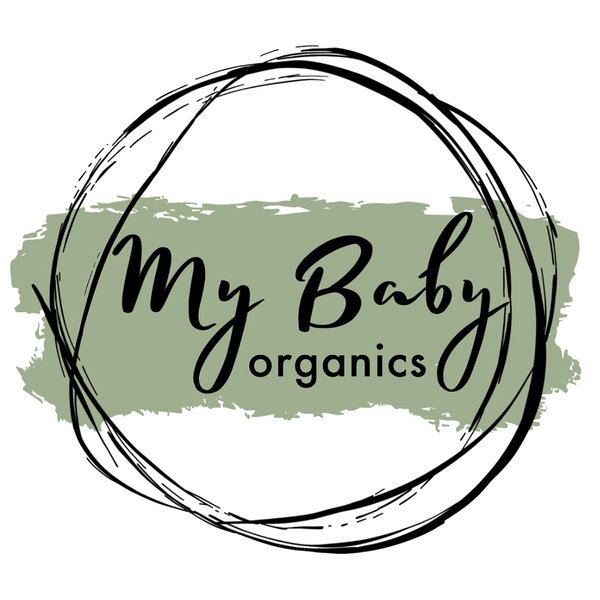As a parent, you want the best for your baby, and that includes giving them nutritious, safe, and healthy foods. However, despite its popularity as a first food, rice cereal may not be the best choice for your baby. Here we explore some compelling reasons why you may want to reconsider feeding your baby rice cereal.

Rice cereal can contain high levels of arsenic, which is a toxic substance that can be harmful to babies' developing immune systems and brains. Arsenic is found in soil and water, and rice plants absorb it more easily than other grains. As a result, rice products, including rice cereal, can contain significant amounts of arsenic. Long-term exposure to arsenic can cause a range of health problems, including skin lesions, respiratory issues, and developmental problems.
While rice cereal may be fortified with vitamins and minerals, it is low in protein, fibre, and other essential nutrients that babies need to grow and thrive. Additionally, most rice cereals are made with refined grains, which are stripped of their nutrient-rich germ and bran layers. As a result, feeding your baby rice cereal may not provide them with the nutrients they need for optimal growth and development.

Rice cereal can cause digestive issues for some babies. Introducing solid foods too early or feeding babies who are not yet ready for solids can cause digestive problems, and the lack of fibre in rice cereal can make it difficult for babies to digest. As a result, babies who are fed rice cereal may experience constipation, bloating, gas, and other digestive issues.
The thick, sticky consistency of rice cereal can be difficult for babies to swallow, and if it is not mixed with enough liquid, it can form a thick mass that can block a baby's airway. As a result, feeding rice cereal to your baby may increase their risk of choking. We recommend everybody learns basic CPR skills. Practise as a family using role play. Knowing exactly what to do helps greatly, instead of guessing what to do at the time of an emergency.

Rice cereal is high in carbohydrates, which can cause spikes in blood sugar levels in some babies. This can increase the risk of obesity and other health problems later in life. High-carbohydrate diets can also contribute to tooth decay, as the bacteria in the mouth feed on the sugars in the carbohydrates and produce acid that erodes the teeth.
Rice is also a common allergen, and feeding rice cereal to babies who are allergic to it can cause allergic reactions, ranging from mild to severe. Symptoms of a rice allergy may include skin rashes, swelling, vomiting, diarrheal, and difficulty breathing. If your baby has a known allergy to rice or other grains, it is best to avoid feeding them rice cereal.
Conventionally grown rice can contain pesticide residues, which can be harmful to babies. Pesticides are chemicals that are sprayed on crops to kill insects and other pests, but they can also harm humans if ingested. As a result, feeding your baby rice cereal made from conventionally grown rice may expose them to pesticide residues.

Feeding your baby rice cereal can contribute to the development of picky eating habits. If your baby is introduced to bland, unappetizing foods like rice cereal early on, they may be less likely to develop a taste for a variety of foods later in life. Additionally, babies who are fed rice cereal may become accustomed to a particular texture and may be resistant to trying other textures.
While rice cereal may be marketed as an affordable and convenient first food, there are many more nutritious and affordable options available.
Here are a few healthier options to explore:
-
Pureed vegetables: Vegetables like carrots, sweet potatoes, and butternut squash are all great options for first foods. They are rich in vitamins, minerals, and fibre, and can be easily pureed into a smooth texture that is easy for babies to eat.
-
My Baby Organics Coconut, Blueberry & Chia Seed Pudding: Try our delicious and healthy Chia Pudding pods, A tasty treat for any time of day.
- Oatmeal cereal: Oatmeal cereal or “porridge” is a great alternative to rice cereal, as it is high in fibre, protein, and other essential nutrients. It is also less likely to contain arsenic than rice products.
- Sweet potato puree: Sweet potatoes are a great source of beta-carotene, which is important for healthy vision and immune function. They are also high in fibre and vitamin C, making them a nutritious first food for babies.

- Avocado puree: Avocado is a great source of healthy fats, fibre, and vitamin E. It is also a mild-tasting food that is easy for babies to digest.
- Pureed fruits: Fruits like bananas, pears, and apples are all great options for first foods. They are high in fibre, vitamins, and minerals and are naturally sweet, making them appealing to babies.

- Mashed avocado and banana: Mashed avocado and banana make a great first food combination. Avocado provides healthy fats, while banana is rich in fibre and vitamins.
- Yogurt: Yogurt is a great source of protein, calcium, and probiotics, which are important for digestive health. Look for plain, whole-milk yogurt without added sugars or artificial flavours.
- Quinoa cereal: Quinoa is a high-protein, gluten-free grain that is easy to digest. It can be cooked and pureed into a smooth cereal that is a great alternative to rice cereal.
When introducing new foods to your baby, it's important to go slowly and watch for any signs of allergies or digestive issues. Start with small amounts of a new food and gradually increase the quantity over time. And remember, every baby is different, so what works for one baby may not work for another. By offering a variety of nutritious foods, you can help your baby develop healthy eating habits that will last a lifetime.

